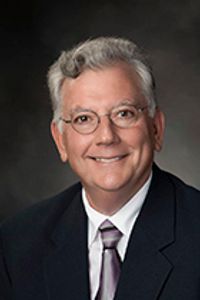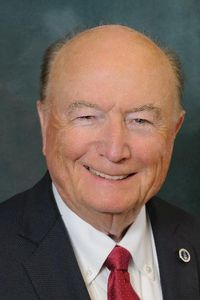Craig Villanti
Craig Villanti has served as an appellate judge on Florida’s Second District Court of Appeal since his appointment by Governor Jeb Bush in 2003. Over his lengthy tenure on the bench, Villanti has established himself as a thoughtful, independent-minded jurist guided by a belief in individual autonomy and judicial restraint. Though little-known outside legal circles, his opinions on business, free speech, and criminal justice issues impact millions across Central Florida.
Early Life and Education
Villanti’s path into law started not in Florida but New York, where he was born in Binghamton in 1952. After majoring in Political Science at SUNY Binghamton, he migrated south to attend the Stetson University College of Law in Gulfport. There, Craig graduated with his Juris Doctor degree in 1977, gaining admission to the Florida Bar that same year.
Legal Career Before Judiciary
Work as Attorney in Private Practice
Upon completing law school, Villanti entered private practice specializing in civil litigation and trial work. His early career was spent working as an associate and partner at firms in West Pasco County. Active in the community, Craig took on leadership roles in the local bar association, serving as President of the West Pasco Bar Association in 1985.
Traffic Court Magistrate
Though successful as a private attorney, Villanti felt drawn to public service in the judiciary. In 1990, he stepped down from his firm to work as a Traffic Court Magistrate in Florida’s 6th Judicial Circuit. This clerkship prepared him well for his next job.
Circuit Court Judge
Just two years into his role as a Magistrate, Villanti ran for and won a seat as Circuit Judge in Florida’s 6th Judicial Circuit. Now working within Florida’s general jurisdiction trial courts, Craig spent 11 years overseeing civil and criminal litigation in Pasco County. His wealth of experience handling complex business lawsuits and presiding over felony trials at this level set the stage for Villanti’s ascension to the appellate bench.
Appointment to Appeals Court
Overview of the 2nd District Court of Appeal
Jurisdiction and Cases
In 2003, newly elected Republican Governor Jeb Bush tapped Villanti to fill an open seat on Florida’s Second District Court of Appeal. One step below Florida’s Supreme Court, the Second DCA reviews decisions from lower courts across six counties and tens of millions of residents. With jurisdiction over high profile cases related to businesses, insurance, local governments, and criminal sentencing, the court wields tremendous influence.
Composition and Decision Making
Comprised of 16 judges elected in nonpartisan retention elections, the Second DCA issues binding opinions in groups of three. Judges aim to apply the law neutrally rather than make new policies. Even so, differences emerge in how the appellate judges interpret laws passed by the legislators and constitution approved by voters.
Villanti’s Judicial Philosophy and Impact
Focus on Individual Rights and Liberties
In his rulings over two decades on the Second DCA, Judge Villanti has carved out a moderate position deferential toward unelected judges making significant changes to state law. Guided by a belief in maximal autonomy for people and companies from government overreach, he leans toward limited restrictions on speech, private property, business operations, and personal freedom.
Belief in Judicial Restraint
Still, Craig aims to avoid accusations of judicial activism by focusing narrowly on the issues and facts at hand rather than issuing sweeping edicts covering situations not specifically addressed in the lower court ruling under review. Compared to some of his colleagues, Villanti shows greater hesitancy to substitute his personal policy views for those of elected representatives in striking down democratically enacted laws.
Major Cases and Opinions
Business Law Cases
Several of Villanti’s most significant opinions have arisen in legal disputes between corporations over contractual obligations, ownership rights, and responsibilities to shareholders. In Indigo Lakes Partnership v. Figueroa (2021), for example, Villanti ruled against a real estate company accused of fraud in the sale of certain timeshare properties. However, he has sided with business interests in other contractual and liability cases during his tenure.
Criminal Justice Reform Advocacy
Judge Villanti has also left his mark in cases involving Florida’s criminal statutes and sentencing guidelines. Though no radical, he has shown a willingness to overturn certain drug offense convictions, limit application of mandatory minimums, and require resentencing hearings given evidence of rehabilitation. For instance, in State v. Williams (2017), Villanti’s opinion expanded juvenile Resentencing rights in line with US Supreme Court rulings. Through incremental steps like these, the judge continues nudging Florida’s penal system toward reform.
Judicial Retention Elections
Unlike some states where appellate jurists face partisan reelection campaigns, Florida uses nonpartisan retention votes to determine whether a judge stays on the bench. Sitting judges do not compete against other candidates. Instead, they must receive over 50% approval in yes/no referendums held every six years on whether they should remain on the court.
2004, 2010, and 2016 Victories
Since his 2003 appointment by Governor Bush, Judge Villanti has prevailed in all four of his retention bids. In November 2004, soon after joining the Second DCA, he secured the support of over 66% of participating voters. Villanti then won more commanding victories in 2010 (66%) and 2016 (70%), affirming public confidence in his performance.
2022 Retention Campaign
Heading into the 2022 midterms, facing his fourth retention vote, Villanti mounted another vigorous campaign to educate citizens about his moderate record during nearly 20 years overseeing critically important appeals.
Supporters and Endorsements
Craig drew bipartisan backing from prominent Republican and Democratic officials and numerous business organizations. Groups highlighting his support included the Florida Chamber of Commerce plus Florida chapters of the National Federation of Independent Businesses and American Federation of Labor and Congress of Industrial Organizations.
Villanti’s Arguments for Retention
The Judge himself emphasized how his opinions adhered closely to precedent and the limited role unelected appellate judges should play in policymaking. Arguing for continuity amid Florida’s rapid growth, he positioned himself as an impartial, fair arbiter deciding cases based on the rule of law.
Outcome of Election
When all ballots were counted, Villanti prevailed once more, collecting nearly 65% of votes in support of his retention. The results demonstrated Craig still maintains credibility after 20 years reviewing lower court decisions. Barring health issues, he appears well positioned to serve out his term ending in 2029 as one of Florida’s longer tenured appellate judges.
Personal Life
Though reserved in temperament, friends describe Craig Villanti as affable with a dry sense of humor. Law clerks working with the Judge praise his even-handed leadership style and skill mentoring aspiring attorneys. Villanti and his wife Sheila have one adult son together, Brian. When not busy issuing opinions in West Central Florida’s influential appellate court, Judge Villanti enjoys reading history books, cheering on the Tampa Bay Buccaneers, and relaxing along the Gulf Coast’s beautiful beaches.
Conclusion – Legacy on Florida Judiciary
Craig Villanti’s long career on the Second District Court of Appeal remains far from over. Yet, having handled thousands of complex civil and criminal cases over 20 years, he has already left an indelible impact strengthening individual rights and modernizing certain aspects of Florida’s legal system. Without seeking limelight, through reasoned rulings grounded in appellate court precedent, Villanti has etched a commendable legacy few state judges achieve. His independence, faith in citizens’ liberties, and balanced judicial philosophy should continue serving Central Florida well in the years ahead.
FAQs
What are some notable rulings made by Judge Villanti?
Some of Judge Villanti’s most significant rulings have defended free speech rights (Reinish v. Clark, 2010), limited certain mandatory minimum sentences (State v. Williams, 2017), and upheld fraud allegations against real estate companies (Indigo Lakes Partnership v. Figueroa, 2021).
What was the outcome of Villanti’s 2022 retention election?
In November 2022, Villanti won his fourth straight retention election, prevailing with nearly 65 percent of the vote to remain on Florida’s Second District Court of Appeal for a term lasting through January 2029.
How would you describe Villanti’s judicial philosophy?
Judge Villanti has a moderately conservative philosophy focused on individual autonomy and restricting government overreach into people’s lives, liberties, and property. However, he defers substantially to precedent and resists sweeping changes that might reflect judicial activism rather than neutral application of the law.
What professional background did Villanti have before becoming a judge?
Villanti worked as both a private practice attorney focused on civil litigation in Pasco County and a Traffic Court Magistrate before spending 11 years as an elected Circuit Court Judge in Florida’s 6th Judicial Circuit beginning in 1992.
What is the composition and jurisdiction of the Second District Court of Appeal?
The Second DCA has 16 judges elected in nonpartisan retention bids who rule in rotating panels of three on appeals arising from across Central Florida. The court reviews civil and criminal cases under Florida law that typically raise substantial questions about legal errors, constitutional rights, jurisdictional conflicts and similar issues.







